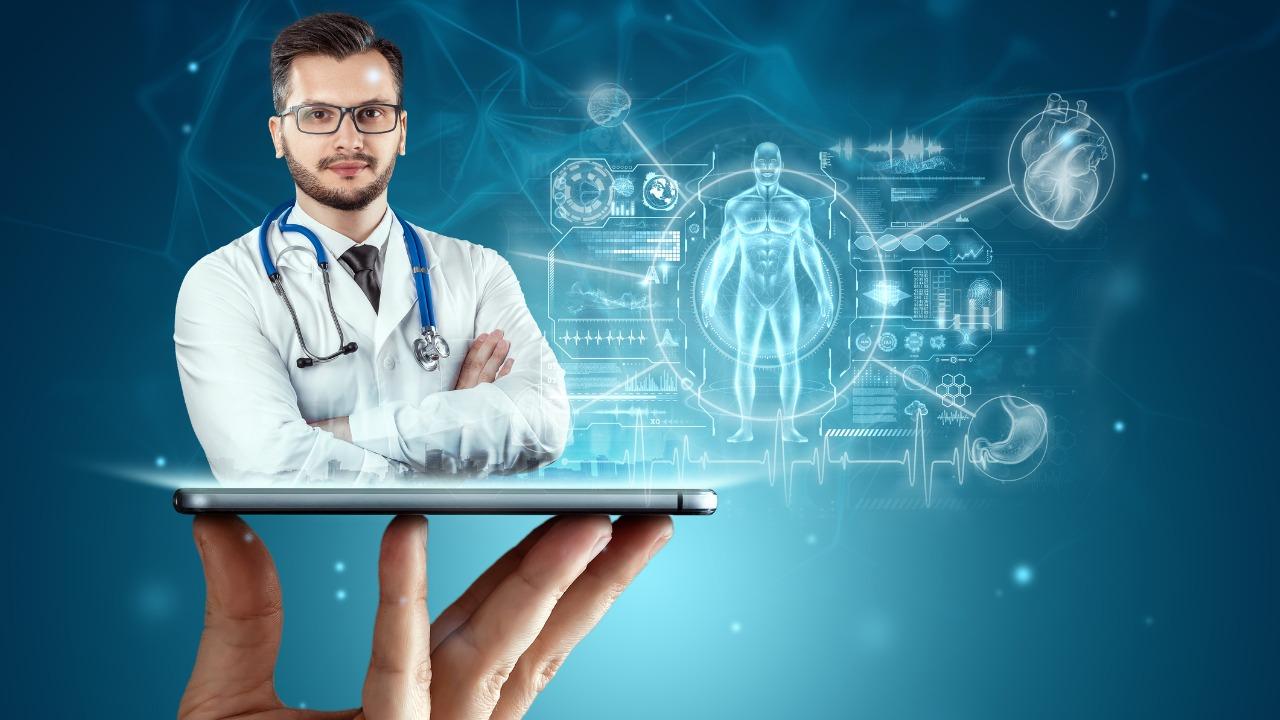Effective doctor-patient collaboration is vital in providing quality healthcare. With the advent of technology, medical apps have emerged as powerful tools to facilitate this collaboration, revolutionizing the way doctors and patients interact. In this article, we will explore the significance of doctor-patient collaboration, the rise of medical apps, their key features, and how they can enhance collaboration.
Understanding Doctor-Patient Collaboration
Definition and Significance
Doctor-patient collaboration refers to a cooperative partnership between doctors and patients, where they work together in decision-making, treatment planning, and goal-setting. It goes beyond the traditional doctor-patient relationship, fostering a sense of mutual trust, respect, and shared responsibility. The significance of doctor-patient collaboration lies in its potential to improve healthcare outcomes, enhance patient satisfaction, and promote patient-centered care. When doctors and patients collaborate effectively, it leads to better treatment adherence, patient engagement, and overall quality of care.
Key Benefits
Effective doctor-patient collaboration offers numerous benefits for both doctors and patients. For doctors, it allows for a deeper understanding of patients’ preferences, values, and lifestyle factors, enabling them to provide more personalized and tailored care. Collaborative decision-making enhances treatment planning, as patients are actively involved in choosing treatment options that align with their goals and values. This, in turn, increases treatment adherence and improves patient outcomes. For patients, collaboration empowers them to become active participants in their healthcare journey, leading to increased satisfaction, improved self-management skills, and a sense of control over their own health.
Challenges Faced
Despite the inherent benefits, achieving optimal doctor-patient collaboration can be challenging due to various factors. Time constraints within healthcare settings often limit the amount of time doctors can spend with each patient, making it difficult to foster comprehensive collaboration. Communication gaps can arise due to differences in language, cultural backgrounds, or health literacy levels, hindering effective information exchange. Moreover, limited access to patient information and fragmented healthcare systems can impede collaboration, as doctors may not have a holistic view of a patient’s medical history. These challenges highlight the need for innovative solutions, such as medical apps, to overcome barriers and enhance collaboration between doctors and patients.
By addressing these challenges through the use of medical apps, doctors and patients can effectively collaborate, leading to improved healthcare experiences and outcomes.
The Rise of Medical Apps
Overview of Technology in Healthcare
The healthcare industry has witnessed a remarkable transformation due to advancements in technology. From electronic health records (EHRs) to telemedicine, technology has revolutionized how healthcare services are delivered, accessed, and experienced. Medical professionals now have access to a vast array of digital tools and resources that enable them to streamline workflows, enhance diagnostic capabilities, and improve patient care. Technology has not only improved the efficiency of healthcare processes but has also empowered patients by providing them with convenient access to information, telehealth services, and self-management tools. As part of this digital revolution, medical apps have emerged as key players in facilitating doctor-patient collaboration and transforming the healthcare landscape.
Introduction to Medical Apps
Medical apps, also known as healthcare apps or mHealth apps, are software applications designed specifically for the healthcare industry. These apps are developed to assist healthcare professionals, including doctors, nurses, and allied healthcare providers, as well as empower patients to actively participate in their own healthcare management. Medical apps cover a wide range of functionalities, including communication, education, data management, remote monitoring, and decision support. They can be accessed via smartphones, tablets, and other digital devices, allowing for convenient and on-the-go use. Medical apps have gained popularity due to their ability to improve healthcare delivery, enhance patient engagement, and bridge the gap between doctors and patients.
Benefits of Medical Apps
Medical apps offer a host of benefits that contribute to enhancing doctor-patient collaboration. Firstly, these apps facilitate secure and efficient communication between doctors and patients. They provide a dedicated platform for secure messaging, allowing doctors and patients to exchange information, discuss treatment plans, and address concerns in a convenient and timely manner. Secondly, medical apps enable seamless integration with electronic health records (EHRs). This integration allows doctors to access patient records, test results, and medical histories, ensuring that they have up-to-date and comprehensive information when making decisions or providing care. Thirdly, medical apps often include features for appointment scheduling, reminders, and notifications, streamlining the administrative aspect of healthcare and reducing the chances of missed appointments. Lastly, medical apps offer educational resources, personalized health information, and self-management tools, empowering patients to actively engage in their healthcare journey and make informed decisions.
By leveraging the functionalities of medical apps, doctors and patients can overcome communication barriers, enhance access to information, and collaborate more effectively, resulting in improved healthcare outcomes and patient satisfaction.
Key Features of Medical Apps
Secure Communication and Messaging Functionalities
Medical apps provide a secure and convenient platform for doctors and patients to communicate and exchange information. These apps offer encrypted messaging functionalities that ensure privacy and confidentiality of sensitive medical discussions. Doctors can communicate test results, treatment updates, and general advice securely, while patients can ask questions, provide updates on their condition, and seek clarifications without compromising their privacy. Secure communication within medical apps promotes a collaborative and ongoing dialogue between doctors and patients, fostering a deeper understanding and trust in the doctor-patient relationship.
Electronic Health Records Integration
Integration with electronic health records (EHRs) is a critical feature of medical apps. By seamlessly connecting with EHR systems, medical apps enable doctors to access comprehensive patient information, including medical histories, allergies, lab results, and medication records. This integration eliminates the need for manual data entry and ensures that doctors have up-to-date and accurate information at their fingertips. With easy access to patient data, doctors can make well-informed decisions, personalize treatment plans, and provide efficient and effective care. Patients also benefit from EHR integration as their medical information is readily available to doctors, ensuring continuity of care and reducing the likelihood of medical errors.
Appointment Scheduling and Reminders
Medical apps often include features for appointment scheduling and reminders, streamlining the process for both doctors and patients. Patients can use the app to book appointments at their convenience, eliminating the need for phone calls or in-person visits. The app can send automated reminders to patients, reducing no-shows and improving appointment adherence. Doctors can efficiently manage their schedules, view upcoming appointments, and make any necessary adjustments. Appointment scheduling and reminders within medical apps simplify the administrative tasks associated with managing appointments, allowing doctors to focus more on patient care.
Telemedicine Capabilities
Telemedicine capabilities have gained significant prominence in recent years, and many medical apps incorporate this feature. Telemedicine allows doctors and patients to conduct remote consultations and follow-ups, eliminating the need for in-person visits, especially for non-emergency or routine cases. Through video conferencing or secure messaging, doctors can assess patient conditions, provide medical advice, prescribe medications, and monitor progress from a distance. Telemedicine enhances access to healthcare, particularly for individuals in remote areas or those with limited mobility. It also reduces travel time, increases convenience, and expands the reach of medical services.
Educational Resources and Personalized Health Information
Medical apps often provide a wealth of educational resources and personalized health information to empower patients and support their healthcare journey. These resources can include articles, videos, infographics, and interactive tools that educate patients about specific conditions, treatment options, preventive measures, and healthy lifestyle choices. Furthermore, medical apps can offer personalized recommendations and reminders based on patient profiles and health goals, promoting self-management and empowering patients to actively engage in their healthcare. By providing educational resources and personalized health information, medical apps enable patients to make informed decisions, improve health literacy, and take ownership of their well-being.
The integration of these features within medical apps enhances doctor-patient collaboration, facilitates information exchange, and empowers patients to take an active role in managing their health.
Ensuring Effective Doctor-Patient Collaboration with Medical Apps
Customization and Adaptability
Medical apps should be customizable and adaptable to meet the specific needs of different medical practices. Every healthcare setting has unique workflows, specialties, and patient populations. Therefore, it is crucial for medical apps to offer flexibility in terms of customization and adaptability. App developers should collaborate closely with healthcare professionals to understand their specific requirements and design app functionalities that align with their workflows. Customization options can include tailoring the user interface, incorporating specialized forms or templates, and integrating specific features or modules relevant to the medical practice. By offering customization and adaptability, medical apps can seamlessly integrate into existing workflows, enhance efficiency, and improve doctor-patient collaboration.
User-Friendly Interfaces
User-friendly interfaces are essential for medical apps to ensure smooth and intuitive navigation for both doctors and patients. The app’s interface should be visually appealing, logically organized, and easy to navigate. Doctors and patients should be able to find the desired features, access information, and perform tasks without confusion or frustration. Intuitive design principles, such as clear icons, intuitive gestures, and straightforward menus, can enhance the user experience. User-friendly interfaces contribute to improved usability, efficiency, and overall satisfaction with the medical app, promoting seamless collaboration between doctors and patients.
Data Privacy and Security Considerations
Data privacy and security are paramount when it comes to medical apps. App developers must ensure that the app complies with applicable privacy regulations, such as HIPAA (Health Insurance Portability and Accountability Act) in the United States. They should employ robust security measures to safeguard patient information from unauthorized access, data breaches, or cyber threats. Encryption techniques, secure authentication, and stringent access controls should be implemented to protect sensitive data within the app. By prioritizing data privacy and security, medical apps instill confidence in both doctors and patients, fostering a safe environment for collaboration and information exchange.
Seamless Integration with Existing Healthcare Systems
Seamless integration with existing healthcare systems, such as electronic health records (EHRs) or practice management software, is crucial for medical apps. Integration allows for smooth data flow and exchange between different systems, eliminating the need for duplicate data entry or manual synchronization. When medical apps seamlessly integrate with EHRs, doctors can access patient records, view test results, and update information in real-time. This integration promotes efficiency, accuracy, and continuity of care. Furthermore, integration with practice management systems enables synchronization of appointments, billing information, and other administrative tasks. By seamlessly integrating with existing healthcare systems, medical apps optimize workflows, minimize errors, and enhance collaboration between doctors and patients.
By addressing customization, user-friendliness, data privacy, and system integration, medical apps can provide a comprehensive and reliable platform for effective doctor-patient collaboration, leading to improved healthcare outcomes and enhanced patient experiences.
New York App Developers: Your Trusted Partner for Medical App Development
New York Software Developers is a reputable software development firm based in New York City, specializing in creating top-notch medical apps. With a team of skilled professionals, they have established themselves as industry leaders in developing high-quality, innovative, and user-friendly applications for the healthcare sector. Their expertise, experience, and commitment to excellence set them apart as a trusted partner for medical app development projects. Whether it’s a small clinic or a large healthcare organization, New York Software Developers has the knowledge and skills to deliver tailored solutions that cater to the unique needs of their clients.
Expertise in Medical App Development
New York Software Developers possesses extensive expertise in medical app development, making them a reliable choice for healthcare professionals seeking to enhance doctor-patient collaboration. Their team comprises experienced developers, designers, and industry experts who understand the intricacies of the healthcare landscape. They stay up-to-date with the latest industry trends, technologies, and regulatory requirements, ensuring that the medical apps they develop align with best practices and compliance standards. By leveraging their deep knowledge and technical know-how, New York Software Developers can deliver robust, secure, and user-friendly medical apps that effectively facilitate collaboration between doctors and patients.
Contact NYSD
If you are considering developing a medical app to enhance doctor-patient collaboration, New York Software Developers is ready to assist you. They provide a seamless and client-focused development process, ensuring that your app aligns with your specific needs and objectives. By leveraging their expertise, experience, track record, and client testimonials, New York Software Developers positions itself as the ideal partner for those seeking to develop a medical app to enhance doctor-patient collaboration.
Take the first step toward revolutionizing doctor-patient collaboration by partnering with New York Software Developers.




